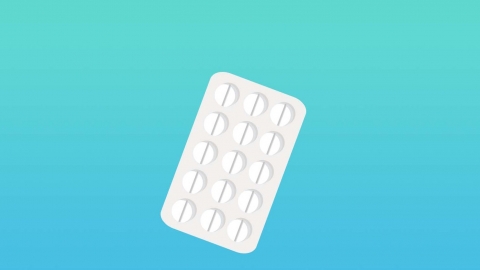What are the efficacy and side effects of phenolphthalein tablets?
In general, the effects of phenolphthalein tablets include treating constipation, cleansing the intestines and removing toxins, promoting digestion, relieving intestinal gas accumulation, and assisting in colonoscopy examinations. Side effects include intestinal dysfunction, electrolyte imbalance, allergic reactions, intestinal melanosis, and induced arrhythmia. It is recommended to take the medication under medical guidance. Detailed analysis is as follows:

I. The Effects of Phenolphthalein Tablets
1. Treating Constipation
Phenolphthalein tablets can stimulate the intestinal mucosa, increase intestinal peristalsis, and promote the excretion of feces, thereby effectively alleviating constipation symptoms and helping restore normal bowel habits.
2. Cleansing the Intestines and Removing Toxins
It helps expel accumulated feces and toxins from the intestines, reducing the retention time of harmful substances in the intestines and, to some extent, cleansing the intestines and improving the intestinal environment.
3. Promoting Digestion
This medication can promote intestinal peristalsis, aiding in the propulsion and digestion of food within the gastrointestinal tract, allowing better mixing of food with digestive juices, improving digestion efficiency, and reducing discomfort caused by indigestion such as abdominal bloating.
4. Relieving Intestinal Gas Accumulation
The medication accelerates intestinal peristalsis, helping expel gas from the intestines, reducing symptoms such as abdominal distension and pain caused by gas accumulation, making gas distribution in the intestines more even, and restoring normal intestinal gas circulation.
5. Assisting Colonoscopy Examinations
Before undergoing a colonoscopy, taking phenolphthalein tablets can empty the fecal matter in the intestines, enabling physicians to observe the intestinal mucosa more clearly, improving the accuracy of the examination, and reducing the possibility of missed or incorrect diagnoses.
II. Side Effects of Phenolphthalein Tablets
1. Intestinal Dysfunction
Phenolphthalein tablets stimulate intestinal peristalsis, and long-term use may disrupt the normal peristaltic rhythm and neural regulation of the intestines, leading to reduced autonomous intestinal peristaltic ability, resulting in intestinal dysfunction characterized by alternating constipation and diarrhea.
2. Electrolyte Imbalance
Phenolphthalein tablets can significantly increase intestinal fluid volume, promoting bowel movements while potentially causing excessive excretion of electrolytes such as potassium, sodium, and chloride through feces, leading to electrolyte imbalance, which may cause symptoms such as fatigue, muscle pain, and arrhythmia.
3. Allergic Reactions
Some individuals may be allergic to phenolphthalein tablets, experiencing skin symptoms such as rash, itching, and redness. In severe cases, allergic shock symptoms such as difficulty breathing and laryngeal edema may occur, endangering life.
4. Intestinal Melanosis
Phenolphthalein tablets can cause macrophages in the intestinal mucosa to engulf large amounts of pigment particles, and long-term use may lead to pigmentation of the intestinal mucosa, causing intestinal melanosis and increasing the risk of diseases such as intestinal polyps and tumors.
5. Inducing Arrhythmia
Electrolyte imbalances caused by phenolphthalein tablets, especially reduced blood potassium levels, can affect the normal electrophysiological activity of myocardial cells, making arrhythmia more likely. Patients may experience discomfort symptoms such as palpitations, chest tightness, and shortness of breath.
When experiencing constipation, do not blindly take phenolphthalein tablets on your own. First, try to improve the condition by adjusting your diet, increasing dietary fiber intake, drinking more water, and engaging in appropriate physical activity. If the problem of constipation is severe and requires medication, you should choose suitable drugs under the guidance of a physician, avoiding self-medicating with stimulant laxatives like phenolphthalein tablets for prolonged periods.





